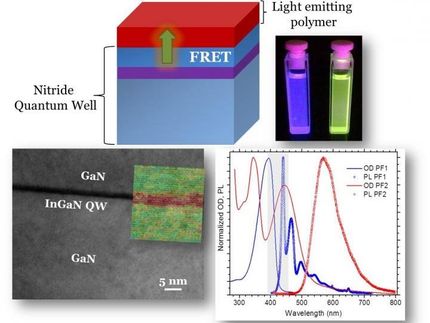Nanoparticles' defects can be useful
Advertisement
According to Yulia Kuznetsova, defects in nanoparticles play a very serious role in the formation of their real structure and physical properties. Therefore, having learned to create the necessary defects in the required quantities, we can control characteristics of such materials. In other words, it can give many opportunities for creating completely new functional devices, as well as for significantly improving those already existing - from the computer chip to the power systems of space vehicles.
'The report summarize the experimental and theoretical results of studies of the energy conversion process in Gd2O3 nanoparticles activated by erbium ions,' says Yulia Kuznetsova. 'The analysis showed that the intrinsic defects of the matrix serve as effective donors of UV radiation, thereby forming a new channel for energy conversion with a high quantum yield. We managed to formulate optimal requirements for the type and concentration of defective energy states in Gd2O3:Er nanoparticles, which ensures the achievement of improved conversion parameters. In particular, according to our data, the use of Gd2O3:Er material in solar cells will increase their efficiency by at least 50%.'
The research was carried out at UrFU Institute of Physics and Technology under the guidance of Anatoly Zatsepin, in the scientific laboratory "Physics of Functional Materials of Carbon Micro- and Optoelectronics" and "Photonics and Vacuum Ultraviolet Spectroscopy". Employees of the Departments of Rare Metals and Nanomaterials, Experimental Physics, Theoretical Physics and Applied Mathematics also made their contribution to the research.
'Based on the results presented at the E-MRS meeting, we prepared an article for publication in the international journal Physica Status Solidi, indexed in WoS and Scopus,' says Yulia. 'We have also established new professional contacts during the event and planned joint research with leading specialists from University of Aveiro (Portugal), University of Helsinki (Finland), University of Cagliari (Italy), University of Florida (USA). I am sure our further research will certainly benefit from this collaboration.'
Most read news
Topics
Organizations
Other news from the department science

Get the chemical industry in your inbox
By submitting this form you agree that LUMITOS AG will send you the newsletter(s) selected above by email. Your data will not be passed on to third parties. Your data will be stored and processed in accordance with our data protection regulations. LUMITOS may contact you by email for the purpose of advertising or market and opinion surveys. You can revoke your consent at any time without giving reasons to LUMITOS AG, Ernst-Augustin-Str. 2, 12489 Berlin, Germany or by e-mail at revoke@lumitos.com with effect for the future. In addition, each email contains a link to unsubscribe from the corresponding newsletter.






























































